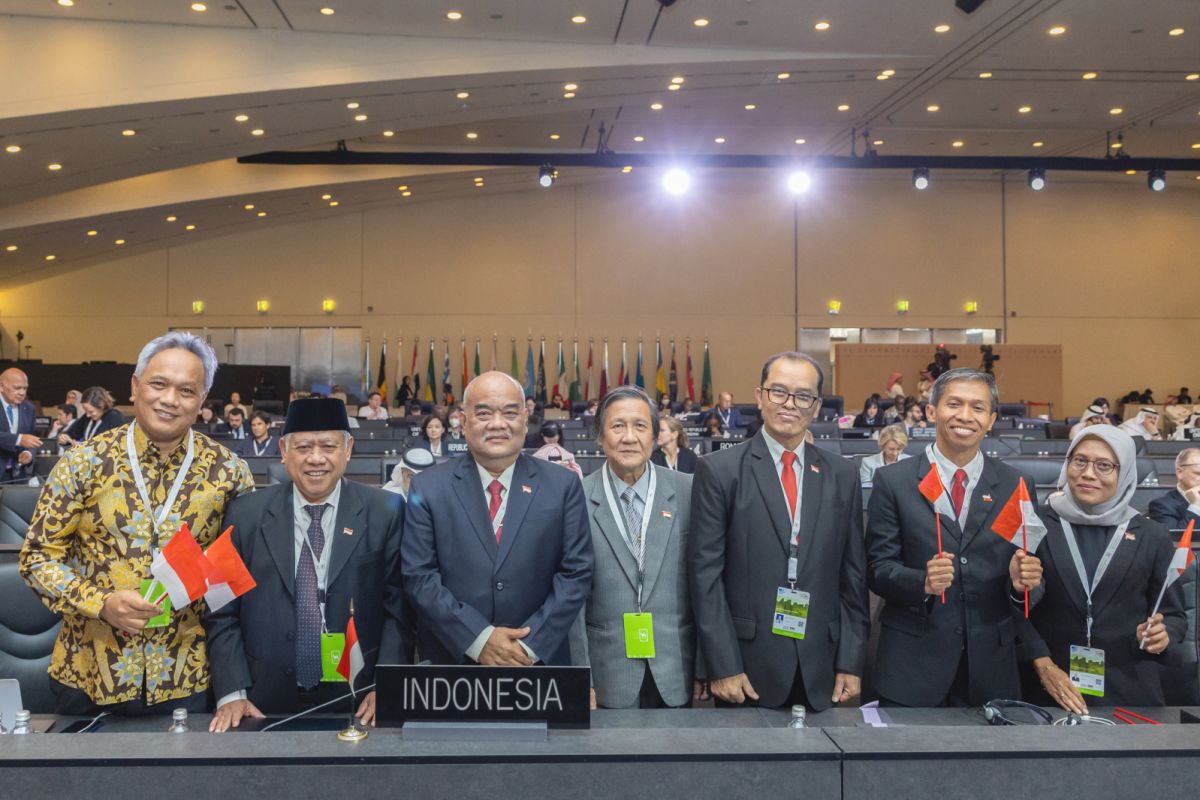During a session attended by Deputy Governor of Yogyakarta KGPAA Sri Paduka Paku Alam the 10th, the Yogyakarta Philosophy Axis is fully accepted without objection as a World Cultural Heritage according to WHC 2345.COM 8B. 39 designation document on September 18, 2023.
"Congratulations to Indonesia for passing the Philosophy Axis as a World Cultural Heritage," Chairperson of the World Heritage Committee Abdulelah Al-Tokhais noted in an official statement received in Yogyakarta, Tuesday.
Responding to the decision, Governor of Yogyakarta Sri Sultan Hamengku Buwono the 10th stated that the success was the result of cooperation between all parties and was a tribute to the masterpiece of Sri Sultan Hamengku Buwono the 1st as the initiator of the Philosophy Axis.
According to Sri Sultan, the Philosophy Axis is a cultural heritage of high philosophical value that should be preserved with all the attributes that accompany it.
"We express our gratitude to UNESCO and all levels of society, who have supported efforts to preserve the Philosophy Axis as a world heritage that has noble universal values for human civilization in the present and future," Sri Sultan stated.
Sri Sultan is optimistic that the decision would serve as an opportunity for joint learning on universal values needed to create a new and better world in the future.
He also expressed hope that the noble values would serve as an inspiration and reference in creating a better world.
In contrast to world heritage nominations from other countries, the process of designating the Yogyakarta Philosophy Axis as a World Cultural Heritage is relatively quick.
Indonesian Ambassador to the Kingdom of Saudi Arabia, Abdul Aziz Ahmad, as head of the Indonesian delegation at the session, expressed gratitude to the UNESCO World Heritage Commission for designating the Yogyakarta Philosophy Axis to be included in the World Heritage List.
"We are honored to be able to contribute this pearl to the World Heritage List, which is a beautiful blend of tangible and intangible cultural heritage," Aziz stated.
Apart from Deputy Governor of Yogyakarta KGPAA Sri Paduka Paku Alam the 10th, other attendees at the designation session were Regional Secretary of Yogyakarta Beny Suharsono, Head of the Yogyakarta Cultural Service Dian Lakshmi Pratiwi, representative of the Yogyakarta Palace Bimo Unggul Yudo, and other members of the Yogyakarta Delegation Team.
"The Yogyakarta Philosophical Axis, with the name 'The Cosmological Axis of Yogyakarta and Its Historic Landmarks,' now not only belongs to Yogyakarta or Indonesia but also belongs to the world," Paku Alam the 10th remarked.
Paku Alam emphasized that the designation was an extraordinary world award for the existence of Yogyakarta's noble cultural values as special values and the identity of Yogyakarta.
"Yogyakarta culture contributes to maintaining the sustainability of world prosperity," he affirmed.
According to Head of the Yogyakarta Cultural Service Dian Lakshmi Pratiwi, the main goal of the designation is not merely to obtain a World Heritage status, which is considered by several countries to be highly prestigious, but is more driven to preserve the very valuable cultural heritage of Yogyakarta's identity.
"The struggle to maintain the status is much more difficult because the Philosophy Axis does not only belong to DIY (Yogyakarta), Indonesia, but also to the world. Hence, the joint commitment to maintain it according to international standards is very important to understand," Pratiwi remarked.
The Yogyakarta Philosophical Axis, which is on the UNESCO World Heritage list, with the full title "The Cosmological Axis of Yogyakarta and Its Historic Landmarks," is recognized as a world heritage because it is considered to have universal significance.
The concept of spatial planning, which became known as the Yogyakarta Philosophy Axis, was first coined by the First King of the Ngayogyakarta Hadiningrat Sultanate in the 18th century.
The spatial concept is based on the Javanese conception and takes the form of a straight road structure that stretches between Panggung Krapyak in the south, Kraton Yogyakarta (Yogyakarta Palace), and Tugu Yogyakarta (Yogyakarta Monument) in the north.
The structure of the road along with several areas around it, which hold philosophical symbolism, are the embodiment of the Javanese philosophy of human existence that includes the human life cycle (Sangkan Paraning Dumadi), harmonious life between humans and between humans and nature (Hamemayu Hayuning Bawana), the relationship between humans and God, the Creator, and between leaders and their people (Manunggaling Kawula Gusti), as well as the microcosmic and macrocosmic worlds.
Various Javanese cultural traditions and practices in the government, customary law, art, literature, festivals and rituals are still carried out around the Philosophy Axis area, in particular, and in Yogyakarta, in general.
Related news: InJourney to revamp Semarang Old City
Related news: Indonesia's forest, marine ecosystems crucial for region, world: Minister
Translator: Luqman Hakim, Cindy Frishanti Octavia
Editor: Azis Kurmala
Copyright © ANTARA 2023












